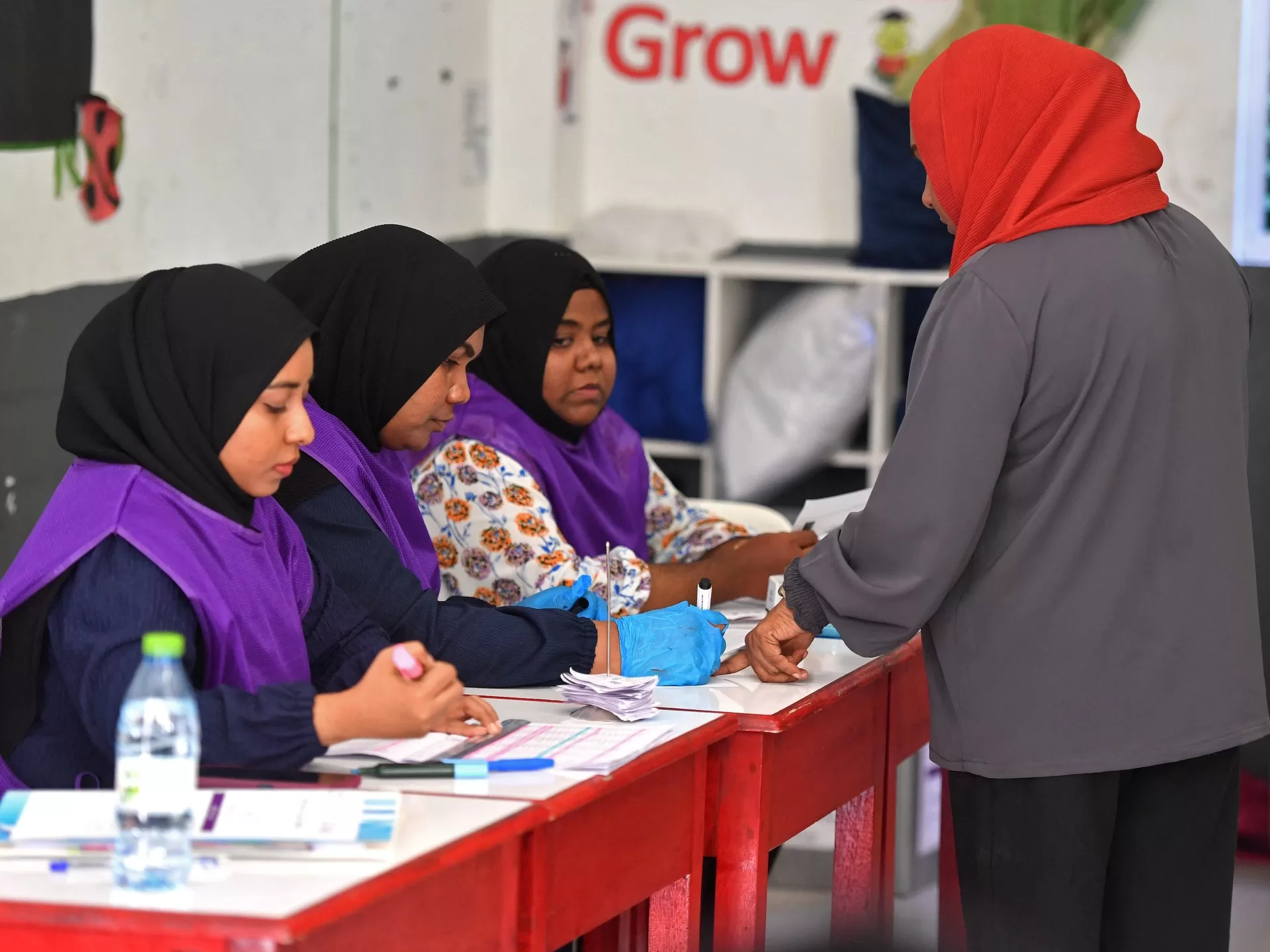President Mohamed Muizzu’s moves to increasingly shift away from New Delhi has caused tension.
Sunday’s elections are keenly watched by India and China as they vie for influence in the island country, which is known for its pristine beaches and luxury resorts and is strategically located in the Indian Ocean, where global east-west shipping lanes pass through.
The rivalry between India and China sharpened following Muizzu’s election last September, with the new leader taking a pro-China stand and acting to remove Indian troops stationed on one of the country’s islets.
About 284,000 people were eligible to vote on Sunday, and tentative results are expected later the same day.
Six political parties and independent groups are fielding 368 candidates for 93 seats in Parliament. Splits in all the main political parties, including Muizzu’s People’s National Congress (PNC), are expected to make it hard for any single party to win an outright majority.
Muizzu won last year’s presidential polls on promises to cut off Indian influence with his “India out” campaign. He was widely seen as a proxy candidate for former President Abdulla Yameen, who held power between 2013 and 2018 and whose 11-year jail term on bribery charges was overturned by a court last week.
President Muizzu has accused his immediate predecessor, Mohammed Ibrahim Solih, of compromising national sovereignty by giving India too much influence. The current parliament, dominated by Solih’s Maldivian Democratic Party (MDP), has sought to stymie Muizzu’s efforts to realign the archipelago’s diplomacy.
At least 75 Indian military personnel were stationed in the Maldives and their known activities were operating two aircraft donated by India and assisting in the rescue of people stranded or faced with calamities at sea. Muizzu has now taken steps to deport the soldiers and have civilians take over those activities.
Relations strained further when Indian social media activists started a boycott campaign of Maldives tourism in January.
The move was in retaliation for three Maldivian deputy ministers making derogatory statements about Indian Prime Minister Narendra Modi for raising the idea of promoting tourism in Lakshadweep, India’s string of islands similar to the Maldives.
According to recent Maldives government statistics, the number of Indian tourists has fallen, dropping that country from being the top source of foreign visitors to the sixth.
Muizzu visited China earlier this year and negotiated an increase in the number of tourists and inbound flights from China. His government has also awarded high-profile infrastructure contracts to Chinese state-owned companies.
In 2013, Maldives joined China’s “Belt and Road” initiative meant to build ports and highways to expand trade – and China’s influence – across Asia, Africa and Europe.
The Maldives consists of about 1,200 coral islands and atolls and has a population of about 520,000.
